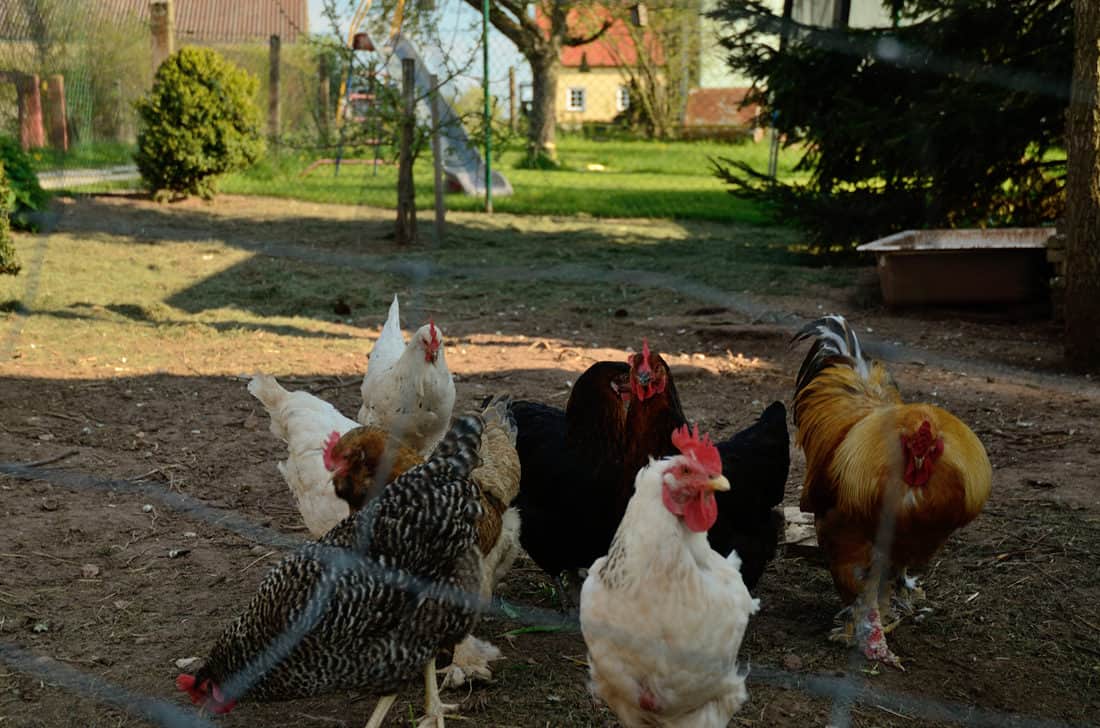Most people believe that chickens are “bird-brained” staple food. However, contrary to what most of us believe, chickens are one of the most intelligent and socially feathery animals. Like other animals, chickens can communicate and perform some basic tasks, challenging the stereotype that such achievements are impossible for chickens. But how smart are chickens?
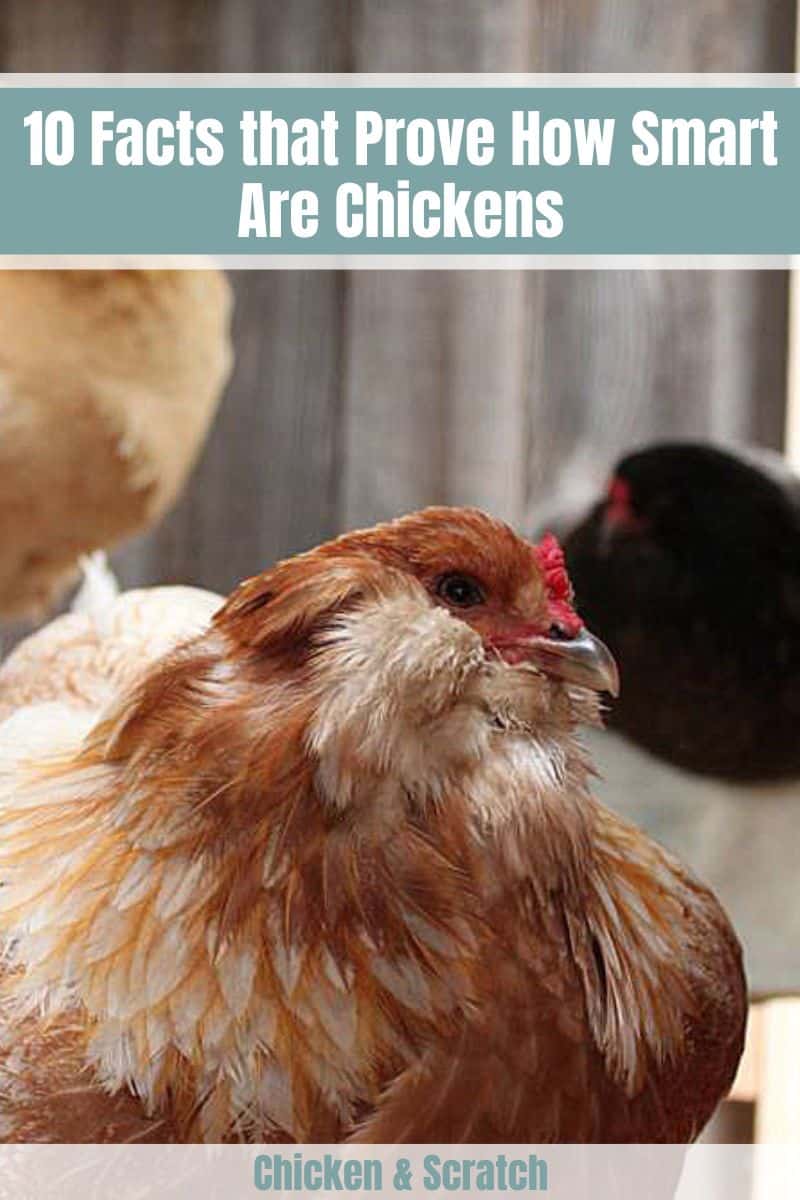
10 Mental and Emotional Facts About How Smart are Chickens
Chickens are not like the typical animals that will survive in the wild, nor are people’s favorite pets. It is not because they are not cute or behaviorally sophisticated, but because people think they are raised mainly for food only. What most people do not know is that chickens are one of the most intelligent animals.
In 2017, a study was made by Dr. Lori Marino, founder of the Kimmela Center for Animal Advocacy, about how smart are chickens. Dr. Lori Marino, who happened to be an author and educator, noted that chickens are more than a commodity and a food source. Dr. Lori Marino concluded that chickens are at par with most animals.
Chickens can also be trained and make good pets. Their cognitive ability allows them to recognize, process, and store information.
This proves that chickens’ nut-sized brains can store a huge amount of information, allowing them to communicate with their peers and people. This only means that this feathery and socially complex bird is not ‘bird-brained’ at all.
To back this claim, here are ten reasons that will expose how smart are chickens.
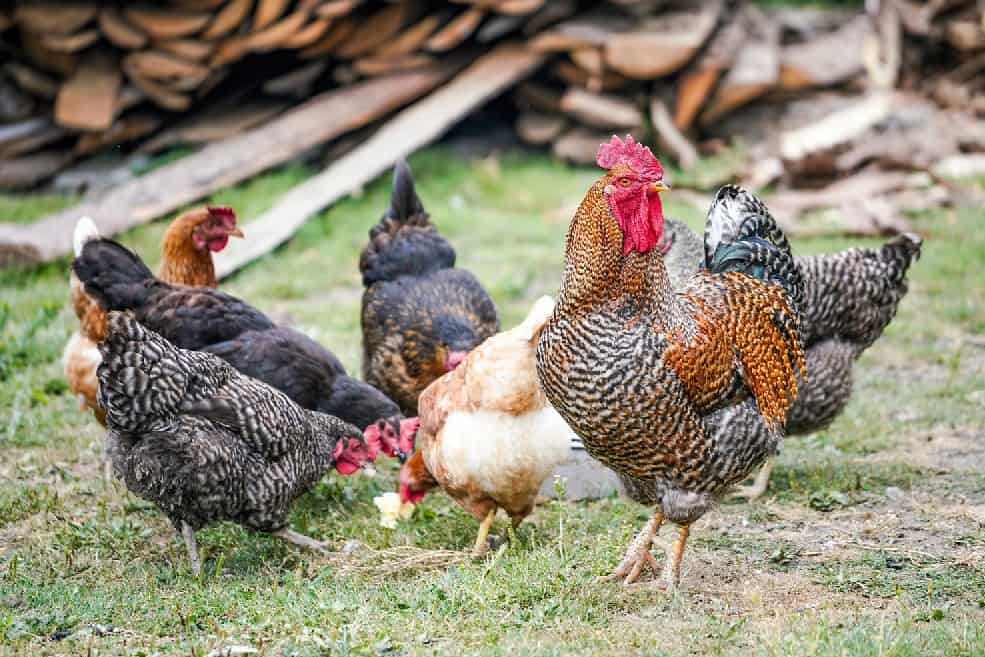
1. Chickens have a unique personality
Dogs and cats are the most common animals you will see as pets. Their friendly-nature, calm personality and cognitive abilities make them the best candidate for house pets. They can easily communicate with their owners and form friendships with other dogs or cats.
Chickens are no different. These little feathery birds are smart enough to communicate their wants and need to their owners and make friendships with them. Moreover, they can easily make friends with other animals too.
Chickens can quickly adapt to their surroundings and to other animals surrounding them unless those animals see them as a perfect dinner to feast around. If this happens, the chickens will end up running around, fighting the predator, or hiding to save their lives from those who are hunting them.
The chickens’ complex personalities help them to create bonds with their peers, which plays a significant role in the brood and its hierarchy.
2. Chickens have incredible empathy
Have you seen a dog nursing another dog’s puppy? Or a cat protecting another cat? They are empathetic, aren’t they? Chickens are like these dogs and cats, too. They are compassionate and protective not only of their chicks but also of those who are part of the brood.
A published study in 2011 by the BBSRC (Biotechnology and Biological Sciences Research Council), which used behavioral and physiological methods, proved that chickens could feel empathy.
One of their experiments was a chick was exposed to a “short light gust of air.” This experiment was a bit distressing to the chicks. The team expected the hens with little to no behavioral changes.
But to their surprise, the hen was seen to change its behavior towards the chick. The hen’s behavior of increased alertness and altered vocalizations was seen as ‘concern’ towards their chick.
Apart from empathy, chickens can also feel certain emotions like fear and stress.
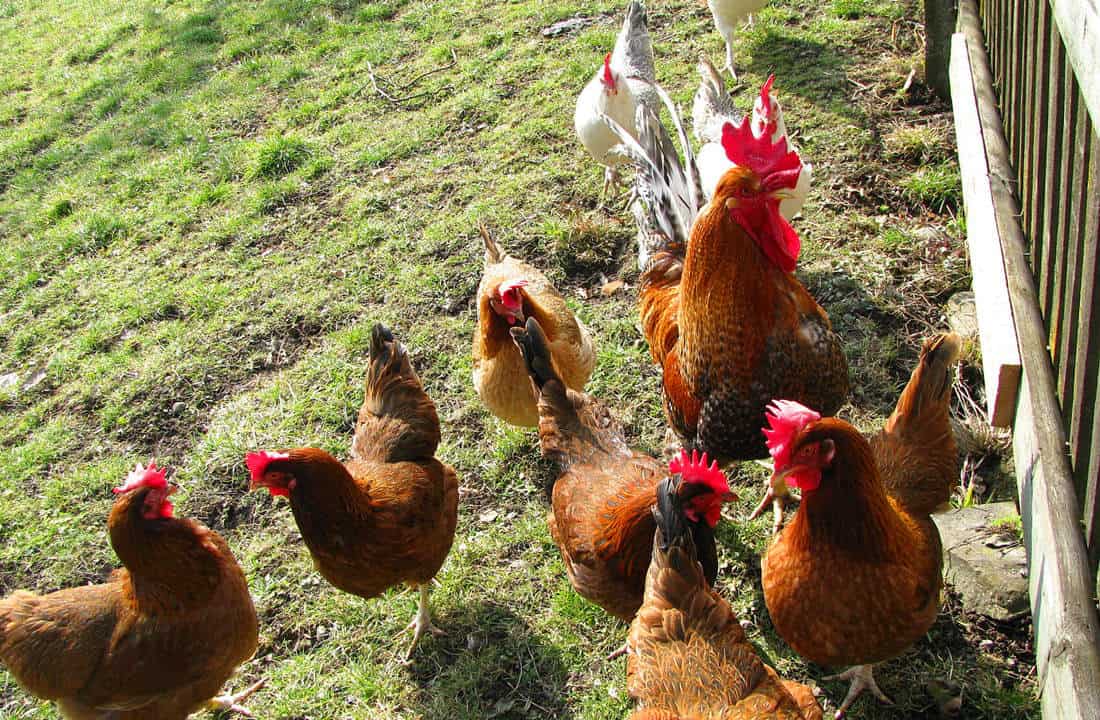
3. Chickens have self-control
The self-control trait is noticeable in well-trained chickens like those raised as house pets. One way to determine whether the chicken has a degree of self-control is through a reward system.
Trained chickens know precisely what they need to do to get their reward. They have great self-control that they can easily refuse an offer or treats for a greater reward at a later time. It is as if they know they get a paycheck after doing their job well.
So, if you have a chicken at home, start training them! It would be fun doing some tricks with your pet chicken.
4. Chickens have sharp memories
Dogs and cats are some of the animals that demonstrate unquestionable memories. But don’t you know that chickens, too, can store data or information despite their nut-sized brain? Guess what? They are not bird-brained at all.
Chickens are like other animals and can also recognize several faces. It is said that they can recognize at least a dozen of faces. Is it not mind-blowing? Who would have thought that chickens could do this?
Here’s a quick trivia, chickens can find a hidden object like how dogs find their favorite toys when hidden. Show the chicken the object and hide it away, and they will still find it. What makes this interesting is that while chickens can find these objects, people can barely find their pair of socks.
5. Chickens have basic problem-solving skills
Like other animals in the animal kingdom, chickens live in a very complex environment where they need to display behavioral flexibility and problem-solving skills. Depending on the situation, chickens are clever enough to do what they ought to do.
They may find tools and other objects that they can use to help them solve a specific task or problem in the brood. They may also try communicating with their owners or people to get help.
One example that best demonstrates how smart are chickens when they are hungry. Hungry chickens make sounds toward their owners or carers to get their attention. This is the chicken’s way of communicating with their owners and informing or reminding them of the feeding time.
You can mostly see and experience this on chicken farms. Try to visit a chicken farm before the chickens’ feeding time, and you will see how noisy they can be while waiting for their food.
6.Chickens and Their Machiavellian Manipulation
You should not underestimate chickens’ intelligence. If you are wondering how smart are chickens, then this number 6 reason might be the make-or-break reason for you to believe that chickens are incredibly smart.
Chickens look like they are 100% innocent-looking and non-lethal. But do you know that chickens are one of the most manipulative animals? In one of Dr. Marino’s studies, they observe that male chickens have a manipulative strategy to lure the female chickens.
In one of its experiments, the male chickens make a food call to attract the female chickens. However, if the male chickens constantly call the female chickens, the latter will do a counter strategy and will stop responding and seeing the male chickens.
This complex behavior is normal and is expected of most animals but not with chickens since they are not seen as intellectual animals.
Check this video to know more about chicken behaviors.
7. Chickens are quick learners
In some instances, chickens’ intellect is comparable to dogs and humans. Like dogs and humans, chickens are capable of learning basic tasks and tricks that are considered complex for some children.
According to Dr. Christine Nicol in her “The Intelligent Hen” study, chickens’ learning ability can cover and handle tracking numbers up to five (5) and understanding the basic concept of structures complicated for children ages 1 to 3 years old.
8. Chickens are inquisitive animals
One way to know that an unfortunate event, a force majeure is about to happen is through animals. Animals, through their superb instinct, can quickly determine whether or not a predator, a hurricane, or an earthquake is about to hit the area they are in. This animal instinct is present in chickens as well.
Chickens can quickly tell if their predator is coming for them. They can also promptly feel the changes in the wind’s direction, temperature, or the ground’s vibration. This gives them an edge over other animals.
Chickens can quickly and precisely tell, signal, and warn their fellow animals of what may happen when they are under bad weather conditions or when their predators start hunting them.
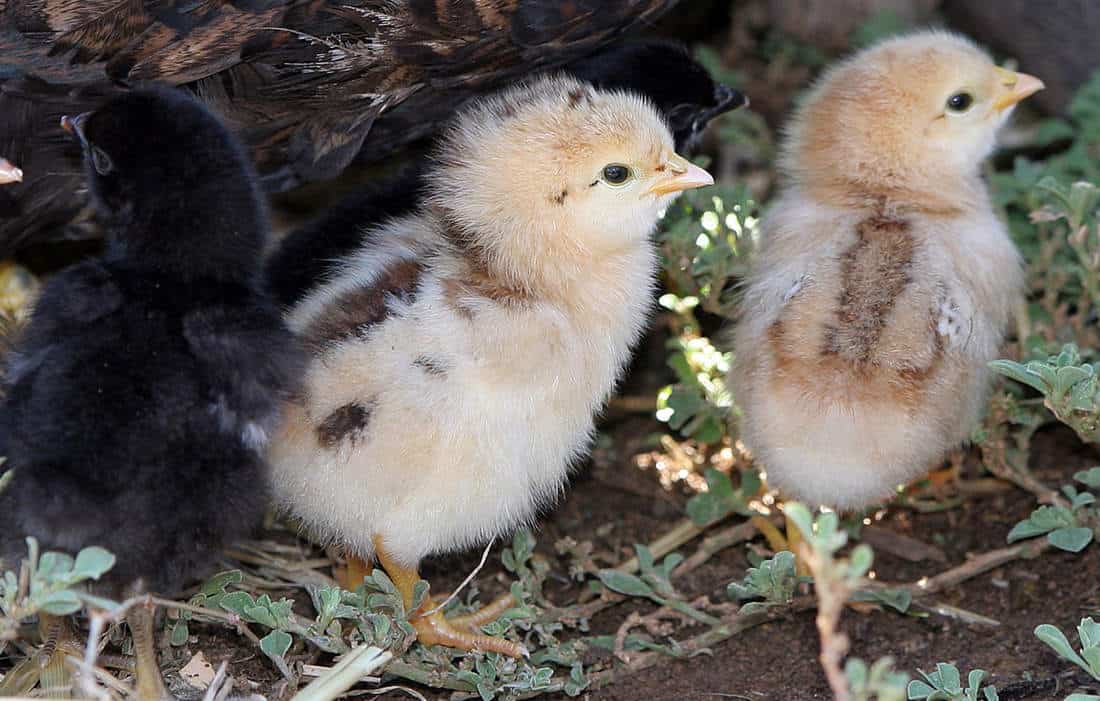
9. Chickens’ hierarchy of dominance
Just as humans have systems to establish leadership and hierarchy, chickens also have their own social structure to determine rankings. This system is called the pecking order, where substantial and highly intellectual chickens start to peck on the other chickens whom they believe are of lower rank in a flock.
This system requires understanding and learning ability to maintain the hierarchy of dominance in the flock. This also means that the chickens must be adaptable to change since the hierarchy changes from time to time.
They may need to empty their cup and learn the newly set pecking order. If the chickens fail to do this, the chickens’ whole social order will collapse, and worst, the flock might barely survive when the predator attacks.
10. Chickens have similar brain wirings to humans
Though chickens’ brains are small and considered as not highly functional, their brains actually have similar brain wirings to humans. Because of this, the chickens have cognitive abilities that allow them to understand, think, learn, remember, communicate, listen, and perform their daily task.
Summary
Sometimes, it is not about how smart chickens are but how smart you are to understand the chickens. If you are observant enough and see chickens as animals and not as a staple food, you will see how smart are chickens.
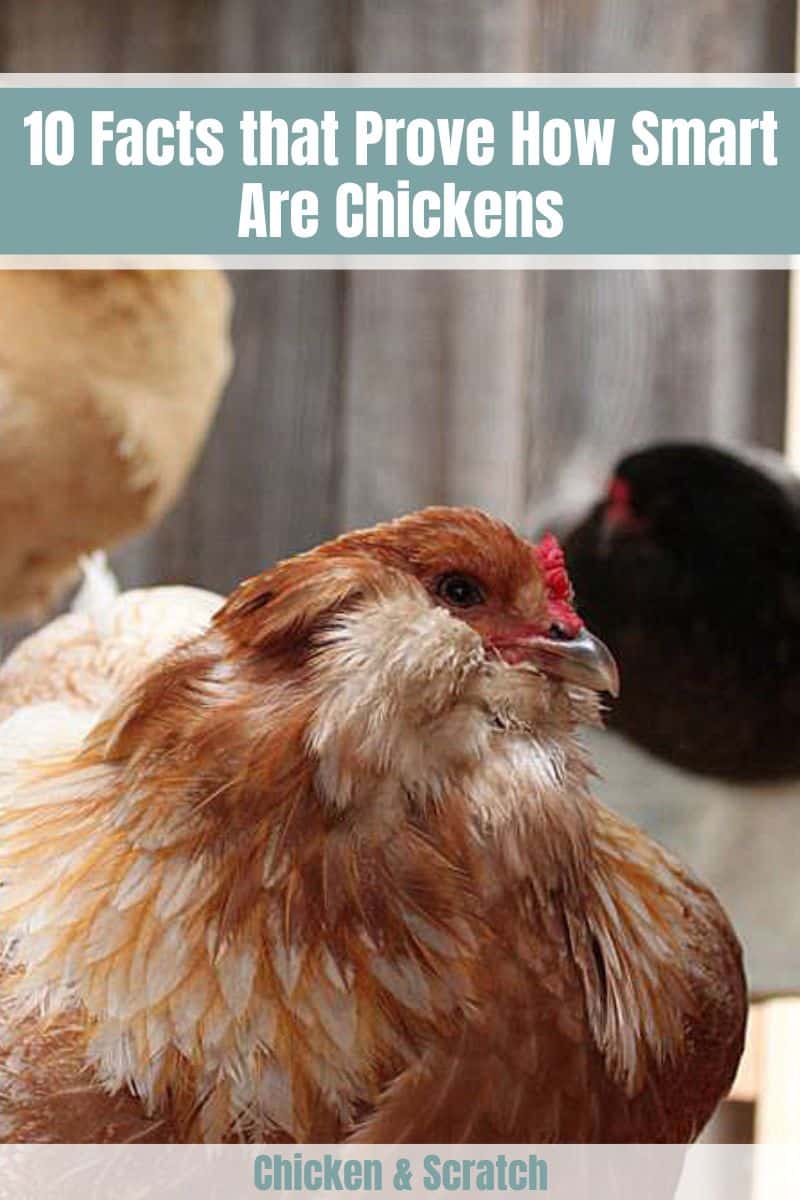

Joseph Hudson has been raising chickens for over 15 years. In 2018, he completed the Agriculture & Natural Resources program at Mt. San Antonio College. He currently raises over 1400 chickens on his 7.5-hectare farm. He keeps sharing his experience on raising healthy and happy chickens on Chicken Scratch The Foundry.
